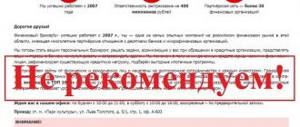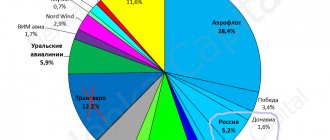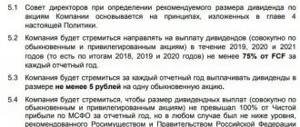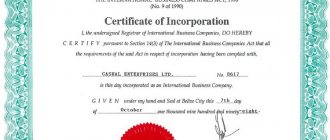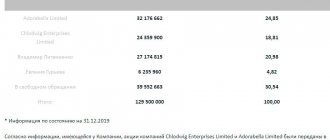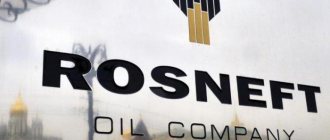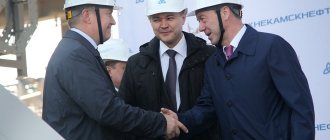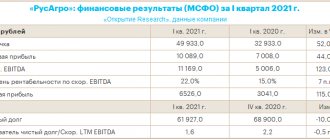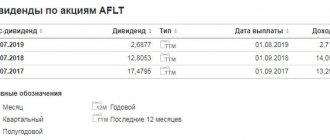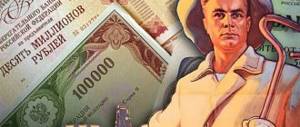Everyone knows that Transaero was the largest Russian airline, second (after state-owned Aeroflot) in the country in terms of the number of transports of both people and cargo.
The news speaks for itself: over the years of its activity, the company has managed to accumulate debts of more than 250 billion rubles. The time had come to pay, but there was no money for it. Just yesterday, December 23, Russian Prime Minister Dmitry Medvedev took pity on the bankrupt company, but at the same time emphasized that there was no need to go into debt, and there would not have been such a sad ending.
What result are we seeing? A long process, general interest, hype in the press, high-profile news and the very ruin of the largest air carrier, default.
What about bonds? How are things going with them at the moment?
However, first things first.
Developments around Transaero
Previously, the main shareholders were Alexander and Olga Pleshakov (18.23% and 18.39%, respectively).
Some time ago, Olga Pleshakova asked the Russian state for a state guarantee of 10 billion rubles. She justified this by the fact that due to the ban on flights over Ukraine, Transaero incurs losses of 3 million rubles every month.
Then, 6 months after the above events, government guarantees were given and even more, VTB issued a loan to the company in the amount of 9 billion rubles.
Moreover, by September 1, 2015, the debts already amounted to approximately 250 billion rubles. It became clear that the company could no longer be saved. It was decided to sell 75% of Transaero shares to Aeroflot for a symbolic 1 ruble.
How did the debt arise?
Where did such a colossal debt come from?
Experts say it's a matter of a race for championship. Expenses were high, and profit from 2007 until 2015 was only one year - 2011. Analysts first started talking about a crisis in the company two years ago. Then the IFRS reporting was published late, with long delays, and even audit reservations.
In 2014, when the “problem” happened with Ukraine, analysts directly said that the airline would not survive. Around this time, Transaero offered Aeroflot to buy the company for 100 million rubles.
But the offer did not materialize. The state decided to bankrupt the company. As a result, on October 26, 2015, the company officially lost the ability to transport passengers. In fact, it went bankrupt.
Transaero and Aeroflot
In the end, a logical question arises: isn’t all this bankruptcy beneficial for Aeroflot, the debtor’s main competitor? We can say that Transaero prevented him from earning big money. The debtor's volume of domestic transportation was insignificant, but the company was clearly successful in external directions.
Back in October 2015, without a competition, Aeroflot (together with its subsidiary) received Transaero's top destinations. More precisely, it was explained as follows: Aeroflot transports 2 million passengers of a bankrupt competitor, and in return receives 56 of Transaero’s best destinations. Allegedly, this will help “recoup” the 17 billion rubles that Aeroflot spent on transporting passengers remaining after the competitor’s license was revoked. Among the new destinations were both unique (for example, Kazakh) and those that were already in Aeroflot’s reserve - the company simply increased the number of flights on them. Based on the results for 2021, Aeroflot still abandoned some of its routes, leaving about 30 as a legacy.
By the way, the situation was not liked by S7, which also claimed to increase its destinations. The air carrier managed to achieve at least some part of Transaero’s legacy only in the summer of 2019 - S7 “received” Paris. That's all. The rest remained with Aeroflot.
There were also planes from the inheritance, but most of them were leased, which means they returned to their original hangars. Trasaero also had its own airliners, but most of them were too old and had to be scrapped. And those that turned out to be suitable again went to Aeroflot, or rather to its “daughter” - .
Lawsuits against Transaero
In October, the company was literally hit with an avalanche of lawsuits. Some were satisfied. Some today, according to the news, remain in process.
Thus, on November 18, 2015, the Moscow Arbitration Court fully satisfied the claim against the airline from Domodedovo Airport.
According to the court decision, Transaero must compensate the airport for the debt in full, and this is neither more nor less, but:
- 780.8 million rubles.
- The airline must reimburse the state duty of 200,000 rubles.
- Penalty - 35.9 million rubles.
There was a lot of noise around passengers and tickets. To summarize: most passengers were able to return the money for the purchased tickets. To do this, they issued a refund at the places where they purchased air tickets and contacted Sberbank.
Causes of the conflict between Rosaviatsiya and Transaero
The Federal Air Transport Agency is an executive body that reports to the Ministry of Transport of the Russian Federation. Rosaviatsia monitors how aviation companies operate, checks certificates and licenses, certifies emergency services, and also provides financial support to airlines. For example, in 2021, representatives of the Federal Air Transport Agency plan to provide subsidies for almost 200 Russian flight routes. The Air Transport Agency makes such payments every year. So, in 2015, Rosaviation was supposed to transfer subsidies from the federal budget to Transaero. The funds were supposed to help the airline make flights from the Far East to the central part of the country and vice versa available to passengers. The amount of payments was supposed to be about 1.095 billion rubles. But, having learned about the airline’s large debts, the Federal Air Transport Agency refused to transfer subsidies. Representatives of the Federal Air Transport Agency believed that Transaero was obliged to warn the executive authority about financial difficulties.
The airline's management was confident that financial problems could not be connected in any way with receiving the promised payments. Therefore, Transaero managed to appeal the refusal of subsidies through the courts. However, the airline was unable to win the case in any instance and did not receive subsidies. The proceedings were suspended. Two years after the start of the conflict, Transaero once again tried to receive payments. Airline representatives managed to convince the Supreme Court (SC) to overturn all previous court decisions.
The Supreme Court agreed to the meeting and even named the reason why Transaero was entitled to budget payments. It turned out that the airline had every right not to provide documents that would confirm the absence of debts. And even in the agreement between the two organizations there was a list of documents that must be provided for reporting to the executive branch. Therefore, Transaero’s lawyers easily proved that the necessary certificates were presented and Rosaviation is obliged to pay subsidies.
On October 30, 2021, the Arbitration Court of the Moscow District approved the conclusion of the court of first instance. Rosaviatsia must transfer 663.9 million to aviation.
Representatives of the Federal Air Transport Agency have already filed a complaint against the resolution with the Supreme Court of the Russian Federation.
Bonds of Transaero company
Now let's take a closer look at how things are going with the company's bonds. Initially, there were 3 issues of exchange-traded bonds on open sale. They were aimed at a wide range of investors, including individuals.
They traded bonds on the MICEX with a total volume of 8 billion rubles. These included:
- BO 01;
- BO 02;
- BO 03.
What are they:
- BO 01 is 2.5 million bonds circulated from March 2012 until March 2015. The cost of one piece was initially 1,000 rubles. These are the “luckiest” bonds for which investors managed to receive money;
- The situation with BO 02 is much more interesting. The period of validity of BO 02 is from December 2012 to December 2021. The initial cost of BO 02 was 1,000 rubles; in total, 2.5 million bonds were issued;
- BO 03 (B3) should have been applied between October 2013 and October 2021. 3 million bonds were issued. The cost (nominal) of one BO 03 is 1,000 rubles.
Repayments on BO O1 bonds, as we wrote above, were made. According to analytical data, on average investors received a return of about 18%. Good news for some investors.
Bond default
In September 2015, news reported that the airline intended to reconstruct bonds BO 02 and BO 03. The reconstruction was part of the plan to transfer Transaero to Aeroflot, which, as is known, did not take place.
However, already in November 2015, a default was declared on BO 03 bonds. What should investors do in this case? Today, there is only one thing left to do - take an extract from the register and file a lawsuit against the company.
The institution under BO 03 at 12% per annum had to pay 29.92 rubles for 1 bond. Based on simple calculations, it becomes clear that the airline did not pay investors 89.760 million rubles. The company simply does not have this money. This is the news.
Investors should try to collect debts from the company in court. But there is a pitfall here. The fact is that bondholders will receive their money only in order of priority. Where the state comes first, and then all the banks that gave Transaero a loan. And there are quite a few of them. Only the main ones:
- Sberbank;
- Alfa Bank;
- Gazprombank;
- VTB;
- VEB;
- FC Otkritie.
Verdict handed down in case of embezzlement at bankrupt airline
The Savyolovsky District Court of Moscow sentenced to seven years in prison the former chief accountant of Aviatsionnaya OJSC Andrei Kovalev, who helped the former general director squander and steal 566 million rubles from a company undergoing bankruptcy proceedings, intended to pay severance pay to employees and taxes to the state. At the same time, the main accused, Alexander Burdin, managed to escape abroad with the money. The investigation had no complaints at all against the airline's shareholders.
As reported in the Savelovsky court, Mr. Kovalev was found guilty of aiding especially large-scale theft by embezzlement or misappropriation (Part 4 of Article 160 of the Criminal Code of the Russian Federation) and concealing funds from which the forced collection of taxes and fees was to be carried out (Part 2 Article 199.2 of the Criminal Code of the Russian Federation).
For these crimes, the chief accountant was sentenced to seven years in a general regime colony with deprivation of the right to hold administrative and economic functions in commercial organizations for another two years after his release.
The state prosecution requested a ten-year sentence for him.
As the court found, in December 2015, shortly after Transaero’s bankruptcy proceedings began, its general director Burdin decided to steal “the company’s property and funds.” For some reason, Chief Accountant Kovalev undertook to help his boss: he promised to provide him with information about the company’s assets and accounts, and then provide “accounting support” for the planned frauds.
First of all, Mr. Burdin, as established by the Moscow Interregional Directorate of the Investigative Committee of Russia (ICR), rented two car parks in Moscow for 113 airline cars subject to sale as part of bankruptcy. Transaero paid 24 million rubles for storage of vehicles, after which a third of this amount was transferred in the form of a kickback to the accounts of shell companies owned by Mr. Burdin and cashed by him.
Six months later, the general director sold all these cars for 47 million rubles.
The real market value of the vehicle fleet was underestimated by him by half, but even the money that he managed to gain went past Transaero’s cash register.
The court found that the chief accountant Kovalev submitted the entire amount to his boss, who simply misappropriated these funds.
The storage of the rest of the company's property, organized by the main accused, as the court found, led to even greater waste. For these purposes, Mr. Burdin rented warehouse hangars in the village of Moskovsky, Lyubertsy district of the Moscow region (now New Moscow) for 414 million rubles. “There was no economic need to use such storage facilities,” as stated in the indictment, at that time, since all the stored property was cheaper. The preliminary investigation explained the general director’s persistence in choosing warehouses simply: Mr. Burdin and his friend, who owns hangars in Moskovskoye, simply divided the money in half. Chief Accountant Kovalev, who has no direct selfish interest in the fraud, helped the partners correctly draw up the dubious agreement.
In the summer of 2021, CEO Burdin “consulted” on financial issues with a private company, invoicing his employer for 46 million rubles. As the investigation established, the general director of Transaero did not even want to resign for free.
When leaving his position in the fall of 2021, Alexander Burdin wrote out rewards for himself and his team members totaling 35 million rubles.
For this bonus, the defendant Kovalev probably agreed to carry out all the dubious orders of his boss, eventually becoming an accomplice in thefts totaling 566 million rubles. The Investigative Committee believes that due to embezzlement committed by accomplices, 6 thousand employees of the bankrupt Transaero were left without the severance pay they were entitled to under the law, average monthly earnings for the period of employment and compensation for the traveling nature of their work.
Why did the chief accountant have to answer for questionable transactions during the bankruptcy of the airline?
In turn, the state, due to financial fraud, was unable to collect Transaero’s debts due to taxes and fees in the amount of 95.7 million rubles. As the court found, at the beginning of the bankruptcy procedure, Interregional Inspectorate No. 6, which serves federal-level taxpayers, recorded this figure and instructed the Otkritie FC Bank to write off as arrears all payments received to Transaero’s account in this bank.
As the court found, knowing about this problem, Messrs. Burdin and Kovalev opened “reserve” accounts for the company in Alfa Bank and Promsvyazbank. They began to receive the money received by Transaero from the sale of aviation spare parts that had become unnecessary to the company.
Income in the amount of about 22 million rubles. was spent on renting warehouses, consulting, etc.
Let us recall that the criminal prosecution of Transaero managers began in the spring of 2021 with a criminal case of non-payment of salaries and other required benefits to employees (Part 2 of Article 145.1). In the spring of 2018, another case was opened - about embezzlement and abuse of power (Part 4 of Article 160 and Part 2 of Article 201 of the Criminal Code of the Russian Federation), initiated by one of the airline’s shareholders, the current head of the Interstate Aviation Committee, Tatyana Anodina. Then both cases were combined in the proceedings of MMSUT, and Messrs. Burdin, Kovalev and the temporary manager of the company for the period of bankruptcy, Mikhail Kotov, eventually became the defendants. Mr. Burdin managed to escape to Spain and is now on the international wanted list. Last August, Mr. Kotov was sentenced by the Savelovsky District Court to five and a half years for abuse of power. The investigation has no claims against the former main shareholders of the bankrupt airline, Olga and Alexander Pleshakov. Currently, Transaero's bankruptcy creditor, VTB Bank, is trying to bring them to subsidiary liability for a total amount of about 249 billion rubles. in the Arbitration of St. Petersburg and the Leningrad Region.
Sergey Mashkin
